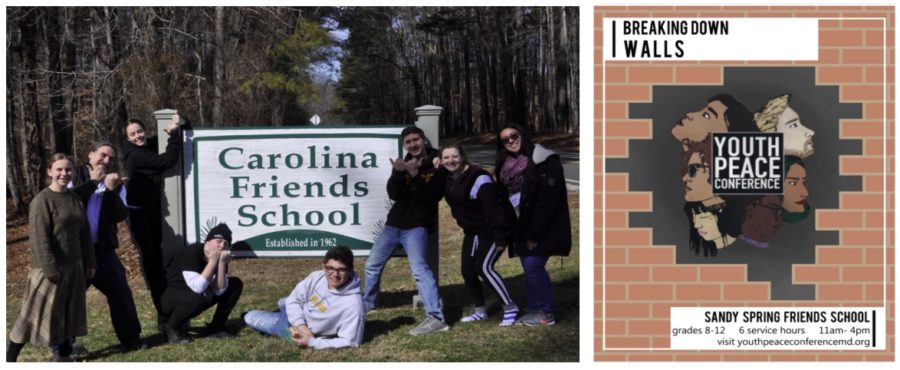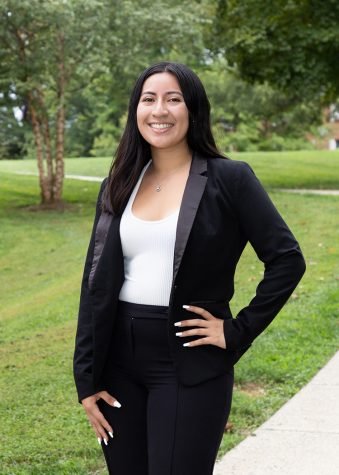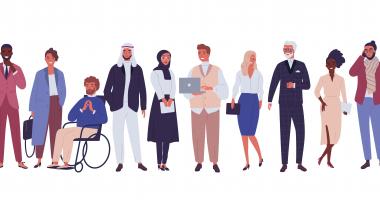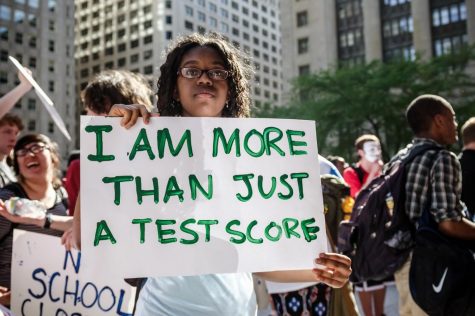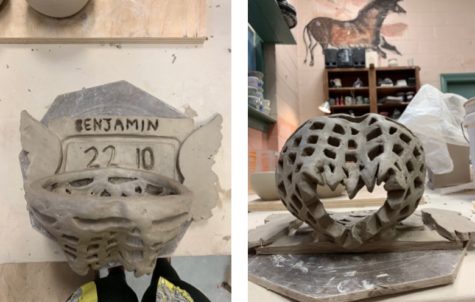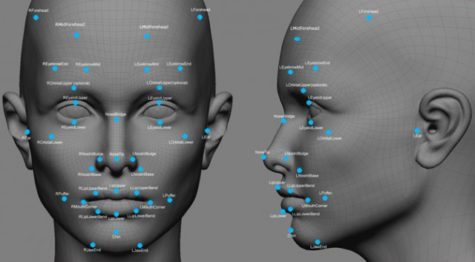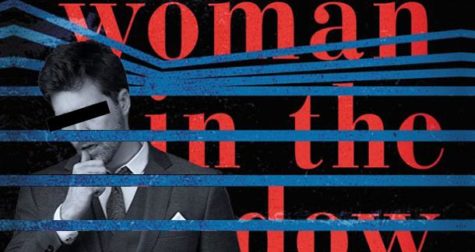Why Storytelling Builds Awareness
March 7, 2018
From February 1st – 3rd, seven SSFS students went to Carolina Friends School in North Carolina to attend this year’s Quaker Youth Leadership Conference. QYLC welcomes students into a community where they can work “collaboratively and with intent to solve the world’s social, political and environmental issues.” In addition, this year’s conference was focused on storytelling as a powerful approach to solving today’s conflicts. For many non-Quaker students encouraged to sign up, the conference might initially have been off-putting since the title portrays the event as a conference meant for Quaker teens. I realized after attending that there is, in fact, no bias against non-Quakers at QYLC. Rather, it’s an event to gather youth activists in Quaker communities. While the connection between storytelling and youth activism might seem minimal, the conference illustrated how storytelling is a powerful activist tool.
This year’s conference featured keynote speaker Pierce Freelon, an entrepreneur, professor, and musician. He is the founder of Blackspace, a program focused on providing opportunities to learn about music, coding, and film for people of color in Durham. In his speech, Freelon detailed his social justice work around the world and offered advice about what student could do to make an impact. He featured a video of Dr. Angelou, an individual he was close to since she was his grandmother’s friend and his mother’s godmother:
“One hand washes the other
And that is to say
While older people are
Doing their best
The Youth had to put its hand in too”
https://www.facebook.com/piercefreelon/videos/1242965375807659/
Hearing this old recording of Dr. Angelou had a very large impact on how I’ve thought about making contributions. Like a lot of students, I long to positively impact the world and the people in it. World hunger, violence, corruption, and discrimination are all violations that motivate me to work hard every day. Knowing that I have the opportunity to help solve one of these issues brings light to my day. But what darkens it is my uncertainty about what I should be doing now.
As a Latina, I have stories to tell. I notice things that are not right and I am not afraid to call them out and discuss them. I enjoy listening to the other side and having authentic and engaged conversations. Talking has always been an important resource for me. I like to talk about my identity and how who I am viewed as differs in these two communities. I go home on the weekends to a community where everyone else is like me. When I board 5 days a week at SSFS, I am part of the small Latinx community. In this context, it felt especially powerful spending a weekend at QYLC, a third context. I loved seeing other students will dedicate their Saturday to attending a forum with other youth activists.
Through communication we build awareness. I know that no one changes from one conversation. Rather, through discussion, compromise, and rejection we move together and broaden our perspectives. Sometimes I think we need to give our peers a push to engage. It can become tiring to spread the word and not be listened to. I think that with communication comes patience.
At a very young age, I was taught to be madura in some aspects of my life. Madura literally means ripe but contextually means mature. Out of many hard realities I faced as a child, one that struck me the most was the harsh reality some of my first generations American friends were facing. Their future hopes relied on the existence of DACA. I feel blessed to not have to deal with these concerns but it deeply saddens me to see my friends have to prioritize these issues above academics and average teenage issues we face. I often don’t know how to help. Should I volunteer in places to help their parents learn English? Should I protest the government at marches? Do I put myself at risk of being caught in a violent conflict?
One enormous step is building awareness and talking to communities who have not thought about these issues. I want to spread information about the removal of DACA and how many innocent teens have lost key support for their college aspirations. The removal of Temporary Protected Status has also left 200,000 Salvadorans scrambling to find a way to stay in this country.
It is hard to want to spark change in the world and spread youth activism when teens have few tools. One very powerful yet overlooked tool is storytelling. Yes, we do not always want to talk because we’re used to continuously being ignored. However, if we keep sharing our own and others’ stories, there will be adults who hear us. These adults have access and power to do more. We can collaborate with them and work to better our world.
Storytelling is powerful and many do not want to believe it. After many heavy conversations and Freelon’s lecture, I have come to accept Freelon’s advice to bloom where you are planted. In other words – start local, start with your most immediate world. This very hard realization to accept. I have come to understand that I will not be able to perfect my two countries, El Salvador and the U.S. What I can and will do is tell the parts of my story that the SSFS community hasn’t heard. Similarly, I will listen to the stories of others and always keep an open ear for the news.
On that note, I am honored to say that SSFS will be hosting our annual Youth Peace Conference on April 11th at 11 am for 8th graders and the high school. This year’s theme is “Breaking Down Walls.” Workshops include focuses on double standards in immigration, socio-economic status in education, sexual harassment, and freedom of speech/action. It will be run by the astounding youth activists of SSFS! Additionally, the 2018/19 QYLC will be hosted at Sidwell Friends School. SSFS and the Baltimore Friends School students are invited to help plan the conference, so if you’re interested in planning and making a positive impact on our community, email me at [email protected]!

